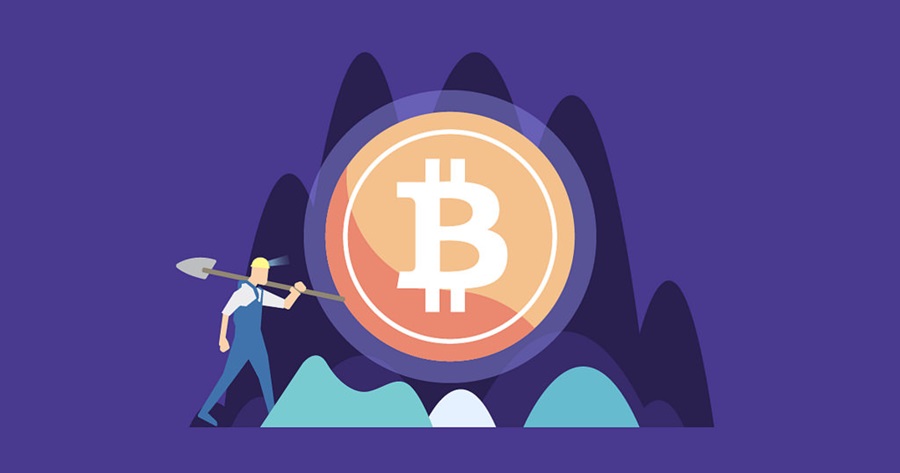The Bank of International Settlement recently released a report that claims cryptocurrencies are a “poor substitute” for institutionally supported currencies. The report, titled “Cryptocurrencies: looking beyond the hype,” outlines the rise of the crypto market, its issues, and whether or not it can truly replace traditional money with a digital alternative, Coindesk reported.
Among the issues cited by the review are mining concentration, hard forks, the creation of new cryptocurrencies, the technology’s innate volatility, and scalability. All of these are indeed concerns in the crypto world and permanent solutions are being explored to address them.
The report concludes that cryptocurrency will be found wanting as a replacement for traditional money due to the issues cited above, but most particularly because of the massive ledger it’s going to create, or, basically, the scalability obstacle.
"To process the number of digital retail transactions currently handled by selected national retail payment systems, even under optimistic assumptions, the size of the ledger would swell well beyond the storage capacity of a typical smartphone in a matter of days, beyond that of a typical personal computer in a matter of weeks and beyond that of servers in a matter of months,” the report goes on.
This finding is somewhat in line with what the German federal government said last week, stating that cryptocurrency doesn’t pose a threat to traditional money since it cannot handle the amount of global financial transactions conducted on a daily basis. This was also the sentiment of Nasdaq Inc. president and CEO Adena Friedman, although both entities suggested that a lot of industries can leverage the advantages that the technology offers.
Aside from scalability, the BIS report also says that the block that would be produced by the handling of a retail transaction can only be managed by supercomputers. And even if there exists a decentralized supercomputer network for calculating the power needed to create the next block, users will still need to transfer a massive amount of data between each other. This, the report claims, has the potential to “halt the internet.”
Of course, the crypto sphere is finding solutions to this problem and other issues surrounding it. For instance, the scalability problem was solved by one of the issues pointed out by the paper, hard fork. There’s another solution called sharding, where the huge block is separated into smaller chunks in order to lower the processing power needed to calculate the next one.



 Nvidia Nears $20 Billion OpenAI Investment as AI Funding Race Intensifies
Nvidia Nears $20 Billion OpenAI Investment as AI Funding Race Intensifies  Nvidia Confirms Major OpenAI Investment Amid AI Funding Race
Nvidia Confirms Major OpenAI Investment Amid AI Funding Race  SpaceX Prioritizes Moon Mission Before Mars as Starship Development Accelerates
SpaceX Prioritizes Moon Mission Before Mars as Starship Development Accelerates  Global PC Makers Eye Chinese Memory Chip Suppliers Amid Ongoing Supply Crunch
Global PC Makers Eye Chinese Memory Chip Suppliers Amid Ongoing Supply Crunch  Instagram Outage Disrupts Thousands of U.S. Users
Instagram Outage Disrupts Thousands of U.S. Users  Nvidia, ByteDance, and the U.S.-China AI Chip Standoff Over H200 Exports
Nvidia, ByteDance, and the U.S.-China AI Chip Standoff Over H200 Exports  Sony Q3 Profit Jumps on Gaming and Image Sensors, Full-Year Outlook Raised
Sony Q3 Profit Jumps on Gaming and Image Sensors, Full-Year Outlook Raised  Oracle Plans $45–$50 Billion Funding Push in 2026 to Expand Cloud and AI Infrastructure
Oracle Plans $45–$50 Billion Funding Push in 2026 to Expand Cloud and AI Infrastructure  SpaceX Updates Starlink Privacy Policy to Allow AI Training as xAI Merger Talks and IPO Loom
SpaceX Updates Starlink Privacy Policy to Allow AI Training as xAI Merger Talks and IPO Loom  Alphabet’s Massive AI Spending Surge Signals Confidence in Google’s Growth Engine
Alphabet’s Massive AI Spending Surge Signals Confidence in Google’s Growth Engine  Tencent Shares Slide After WeChat Restricts YuanBao AI Promotional Links
Tencent Shares Slide After WeChat Restricts YuanBao AI Promotional Links  AMD Shares Slide Despite Earnings Beat as Cautious Revenue Outlook Weighs on Stock
AMD Shares Slide Despite Earnings Beat as Cautious Revenue Outlook Weighs on Stock  SoftBank and Intel Partner to Develop Next-Generation Memory Chips for AI Data Centers
SoftBank and Intel Partner to Develop Next-Generation Memory Chips for AI Data Centers  Elon Musk’s Empire: SpaceX, Tesla, and xAI Merger Talks Spark Investor Debate
Elon Musk’s Empire: SpaceX, Tesla, and xAI Merger Talks Spark Investor Debate  Sam Altman Reaffirms OpenAI’s Long-Term Commitment to NVIDIA Amid Chip Report
Sam Altman Reaffirms OpenAI’s Long-Term Commitment to NVIDIA Amid Chip Report  SpaceX Seeks FCC Approval for Massive Solar-Powered Satellite Network to Support AI Data Centers
SpaceX Seeks FCC Approval for Massive Solar-Powered Satellite Network to Support AI Data Centers  Palantir Stock Jumps After Strong Q4 Earnings Beat and Upbeat 2026 Revenue Forecast
Palantir Stock Jumps After Strong Q4 Earnings Beat and Upbeat 2026 Revenue Forecast 































